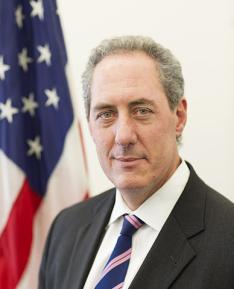The election of President Donald Trump does not bode well for international trade, said Michael Froman ’85, the former U.S. trade representative under President Barack Obama, speaking to roughly 100 students and community members in Robertson Hall Feb. 16.
Froman discussed how trade policy might change in the Trump era. “When you mix the rise of populism with post-fact politics, and then sprinkle in a little bit of demagoguery, it’s a very dangerous combination,” he said.Froman was instrumental in the creation of the Trans-Pacific Partnership (TPP), a deal that was criticized by both political parties last election season. Using the TPP as an example, Froman said that when it comes to trade deals, facts can be easily misconstrued.
“It became nearly impossible to have a fact-based discussion on trade,” he said. “That should concern all of us, regardless of our position on any particular trade agreement. Those of us who care about the quality of political discourse should be concerned when we can no longer have a meaningful conversation based on facts.”
In response to the Trump administration’s disbandment of the TPP and claims to renegotiate NAFTA, Froman said, “The answer does not lie in building walls or raising barriers or withdrawing from trade arrangements. With 95 percent of the world’s consumers living outside of the United States [and] 80 percent of the world’s purchasing power outside of the United States, we need access to markets abroad if we’re going to support the kind of well-paying jobs we want in the United States.”
Froman says the answer is not an isolationist approach, but rather a concerted workforce training effort. “As a government, we don’t do a particularly good job of either equipping our young people with the skills they need to compete in a rapidly changing economy, or, even more so, we don’t do a very good job helping individuals and communities who are adversely affected by change,” he said.
Technological advancement will rearrange the structure of labor, he said, whether we want it to or not: “The problem is, you don’t get to vote on technology.”

